|
Abbe Sher, Courtney Cummings and Michelle Auslander Cohen
|
ABBE SHER
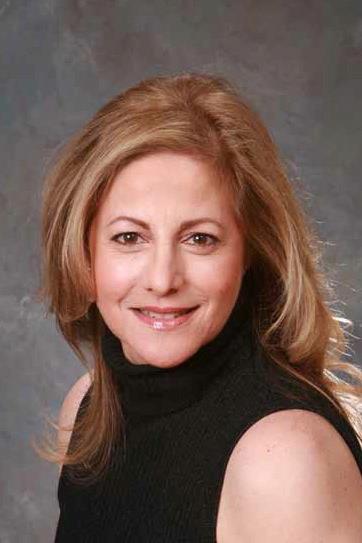 Our newest Featured Member is Abbe Sher, Cantorial Soloist at Temple Judea of Manhasett on Long Island. Abbe has been a GTM member for 15 years. She was born in Portsmouth New Hampshire, a small New England town with an even smaller Jewish population. As a youth, singing was her passion and she loved musicals and Barbara Streisand. She would sing for hours trying to perfect her Streisand imitation and knew the lyrics to every Broadway show. There was no doubt in Abbe's mind
that she would attend college with a major in music.
After graduating from the Eastman School of Music, she went to Boston University School for the Arts and received a Masters degree in Music. The following year, she began her studies at the Boston Conservatory of Music and was the first recipient of the Boston Conservatory Artist Diploma in Opera Performance.
Abbe enjoyed wonderful summers as an Apprentice Artist at the Santa Fe Opera and the Young Artist Development Program at Tanglewood. In addition, she taught voice lessons and put on shows for local Hadassah groups and was the winner of the Boston Opera Company's Young Artist Auditions.
Fast forward a number of years, and Abbe was the single mother of an adorable dimpled daughter who also loved to sing. Mia had just become a Kindergartener at The Solomon Schechter School in White Plains, New York and came home every day singing Shabbat melodies. Abbe and Mia joined a local synagogue and Abbe's interest in Judaism and Jewish music grew. One day her daughter came home and told her she had mentioned to the Cantor at school that Abbe was a singer. Within a few weeks, Abbe was a student at The Academy for Jewish Religion and a few months later was the part time cantorial soloist at Temple B'nai Israel of Oakdale on Long Island.
Since then Abbe has been fortunate to be the full-time soloist at two other wonderful congregations. Her daughter Mia is now grown and works as a medical technologist and Abbe has a son who has made the love of music his passion as well. Nathaniel is now a freshman at the Eastman School of Music and sang with Hazamir throughout High School. He will be singing with Hazamir Alumni at the Hazamir Gala Concert at Carnegie Hall on April 3rd. Shortly, after his Bar Mitzvah, Nathaniel and Abbe joined a local synagogue group for a trip to Israel. It was her first visit and she will never forget how wonderful it was to share this experience with Nathaniel. Last summer Mia traveled to Israel on Birthright and Nathaniel returned to Israel with Hazamir to help support the Hazamir chapter there.
It is with great joy that Abbe serves her congregation. She loves teaching Bar/Bat Mitzvah students and developing a lasting connection with their families as well as being involved with nursing homes and other Jewish organizations and events in the community. In addition, she loves gardening and sharing her abundant produce with her congregation and hopes to start a gardening group at her temple this spring.
COURTNEY CUMMINGS
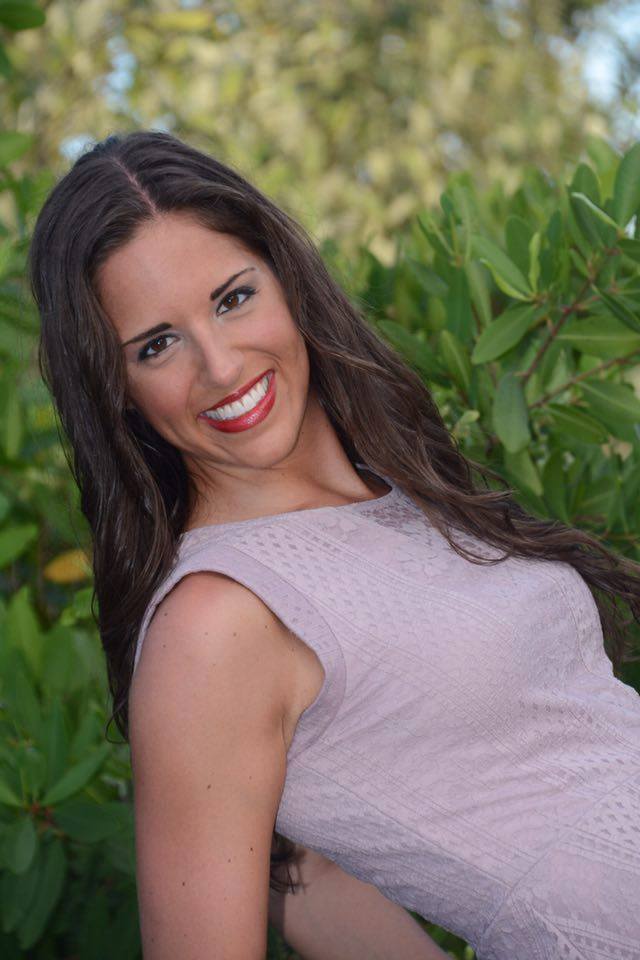 Courtney Cummings recently celebrated two years of service at Temple Israel in Dayton, Ohio. Alan Mason asked Courtney to reflect on this time, and share with our membership some of the experiences, challenges, and accomplishments she experienced.
Brought in initially as an Interim Music Director for the High Holidays in 2013, it was a big leap to leave a stable full-time p
osition at the Jewish Community Center as the Cultural Arts Manager, to truly pursue and share my passion for music. However, two years ago today, I jumped and began my journey as the Music and Program Director for Temple Israel.
Having grown up at Temple Israel, I thought I knew the community, but I quickly realized how different things had become since I had last truly been a part of Temple in high school. In the first few months on the job, I dove into one-on-one conversations with board members, community partners, and other stake holders to get a pulse of who Temple Israel was. Through these interactions, I found a loving and caring family eager for fresh ideas and innovation, but at the same time, apprehensive to change. The previous Shliach Tzibbur was with the congregation for a decade and I could see I had big shoes to fill.
As time marched on, I became more integrated into the fabric of this sacred community. Worship music felt and sounded different, relationships formed and grew, and I found out what it meant to be in synagogue life. Having come from a six-year tenure at the JCC, I thought I knew what it was to work in the Jewish non-profit sector, but the synagogue was a truly different place. It is where we share life moments, raise our voices as one, debate ethical dilemmas, and delight in each others' company.
Throughout these two years, we have experimented with pilot programs like Shabbat Shalommm Yoga, Bike & Brunch, and Sukkahs in the City, and we have spiced up our worship services with new melodies from the likes of current Reform Movement composers and song leaders. Not everything has been successful, but we learn from each experience and get a better sense of who we are at a given moment. With the rabbis, staff, and lay leaders, together we are charged with leading this Kehillah Kedoshah - this sacred community. I am so glad I took that leap.
MICHELLE AUSLANDER COHEN
 Michelle Auslander Cohen
Michelle Auslander Cohen, is a cantorial soloist, voice teacher, composer, wife, and mother living in Boca Raton, Florida. While living in Bloomington, Indiana, Michelle was engaged to join the cantor in singing the High Holidays at B'nai Torah Congregation in Boca Raton. A congregant made a shidduch between Michelle and her (future) husband, Yaniv, and Michelle relocated to South Florida, as she was completing her Performer's Diploma Certific
ate from the Indiana University School of Music Opera Program. Formerly, Michelle received the Bachelor of Music degree in Voice from George Mason University, and the Master of Music degree in Voice from Boston University.
Michelle grew up in Skokie, Illinois in a family of Jewish day school and synagogue musicians. Her aspirations were to become a classical musician and opera singer, but upon relocating to Boca Raton, Jewish music just fell into her lap, and Michelle began singing a temples and synagogues throughout South Florida.
At present, she is Cantorial Soloist at Temple Beth El of Boca Raton, where there is a wide variety of music. Her congregation loves hearing Michelle sing classical music, which is about 20% of the service. Michelle also began composing for herself, and enjoys finding beauty in music from wherever it is from. Michelle's membership in the GTM began in 2008, when she attended the ACC-GTM Convention in Chicago to hear her own work selected for inclusion in the Composer's Workshop. Taking a big step up in GTM leadership, Michelle is co-chairing the 2016 ACC-GTM Convention in Philadelphia, along with Beth Pennamacoor, Cantor David Frommer, and Cantor Erin Frankel.
|
by Dr. Alan Mason, GTM President
I had a wonderful experience making a presentation on the Guild of Temple Musicians to the cantorial students at the Jewish Theological Seminary in New York City on December 2, 2015. The students took great interest in the diverse membership of the GTM, and the variety of skills, styles, professions, and personalities we represent. Thank you, Cantor Nancy Abramson for the opportunity to spend a few days at JTS, meet the cantorial students and fulfill the GTM's mission statement of "sharing the joy of Jewish music."
|
|
by Dr. Alan Mason, GTM President
The midwinter retreat of the western region attracted 140 members of the Guild of Temple Musicians, American Conference of Cantors, Cantors Assembly, graduates of the Academy for Jewish Religion, and other Jewish musicians from across the country.
We met in Palm Springs, California, January 4-7, 2016 and enjoyed a wonderful week of programming and prayer. This was a wonderful opportunity for synagogue musicians of diverse backgrounds and training to come together, collaborate, sing, pray, dance, dine, laugh, and build community.
Teachers included Craig Taubman, Hazzan Alberto Mizrahi, Rabbi Steve Kaye, the artistic director of Theatre Dybbuk, which is the Los Angeles home of Jewish theatre, faculty from the Academy for Jewish Religion, Dr. Tali Tadmor, and others.
The retreat was a wonderful week spent in a gorgeous location, and with delightful, spiritual, talented, and interesting people, Please consider attending next year's midwinter retreat, which will be held in Palm Springs the first week of January 2017.
|
Debbie Friedman z"l (1951-2011)
Honoring her memory 5 years later
|
A Remembrance by ACC Member
Cantor Juval Porat
|
Debbie Friedman and I had lunch shortly before Debbie passed away. We discussed life and love and dogs and leading services together at BCC, the place where Debbie's L'chi Lach premiered. Like many have said before me, Debbie was able to make you feel like the most important person in the room. I feel very fortunate to have had this one small interaction with her. I wrote Lech L'cha with Debbie's L'chi Lach in mind as a tribute to Debbie and my congregation. Debbie's memory is an incredible blessing.
Listen to Cantor Porat's tribute here:
Lech L'cha by Cantor Juval Porat
Cantor Juval Porat serves Congregation Beth Chayim Chadashim in Los Angeles. To learn more about Cantor Porat and his compositions, visit his website: http://www.juval-online.com/
|
|
In Debbie's Honor by
Guitarist Joseph L. Marks
|
For Debbie Friedman whose memory and living music are a blessing to us all...
|
Kathy Storfer z"l
We are profoundly saddened to announce the passing of our dear member, Kathy Storfer who passed away on Monday, November 9, 2015 after a long and valiant battle with cancer. The following is a beautiful tribute, written by Aryell Cohen, Immediate Past President of the GTM.
Kathy meant many things to many people. To all of us at the GTM, she was passionate about our organization. Our website came in to being because of the full time attention she spent on it for two years. S
he was interested in nurturing the professionalism and success of all of our members. Mifgash Musicale always had a special place in Kathy's heart. She made a special effort to attend Mifgash as many years as she could. Because of the tremendous work she did in furthering the mission of the Guild, Kathy was given the Shomeir Shirah Award at the 2013 ACC/GTM Convention.
Kathy worked at the public library in her neighborhood for many years. She derived much happiness reading stories out loud to the children, especially during holiday times. Many of us have seen the photos of Kathy in her witch's hat at story time just before Halloween. Whatever Kathy set out to do, she accomplished with unparalleled zeal and passion. Kathy leaves a huge void; we will miss her terribly. May her soul be bound up in the bond of life. May her memory forever be a blessing to all who knew her.
We extend our heartfelt condolences to Kathy's husband, Paul, and her sons, Jonathan and Daniel.
HaMakom Yenacheim Etchem B'toch Sh'ar Aveilei Tziyon Virushalayim.
May God comfort the entire Storfer family and friends along with all the mourners of Zion and Jerusalem.
|
PRESERVING
Our Musical Past.
SHAPING
Our Musical Future.
|
Klei Shir is published by the Guild of Temple Musicians, an Affiliate of the American Conference of Cantors. For comments or questions, contact Editor
Marla Aviva Bentley, GTM Vice President of Communications and Publicity.
|
|
 |
|
2016 Ben Steinberg Young Composer's Award Criteria Announced
|

The Intention of the GTM Ben Steinberg Young Composer's Award is:
- To encourage gifted young Jewish composers to create worthwhile and appealing music for Jewish worship and Jewish concert programming;
- To encourage the composition of musically literate, Jewishly appropriate musical settings which will be of lasting, practical use for religious services or concert performances, following the compositional form and design to be announced each year;
- To encourage Jewish communities throughout North America and beyond, to listen to, perhaps participate in, and above all to value Jewish musical expressions of quality which are reflective of its own time.
|
|
Sunday, July 24 - Thursday, July 28, 2016
|
Aryell Cohen, Director of Mifgash Musicale, is proud to announce the guest faculty for the 2016 Summer Institute for Synagogue Musicians: Cantors Faith Steinsnyder and David Perper. Cantors Steinsnyder and Perper will join the faculty of Mifgash along with Rabbi Richard Sarason, Cantor Ellen Dreskin and Accompanists Alan Mason and Aryell Cohen.
Cantor Faith Steinsnyder
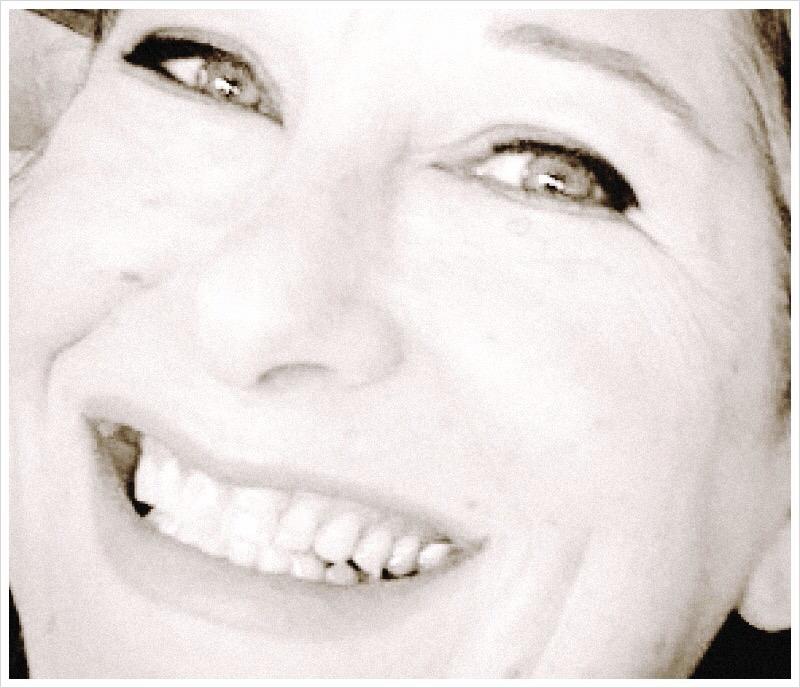 Born in Philadelphia and raised in North Miami Beach by music-loving parents, Jane and Wynne Steinsnyder, Faith studied in Bloomington, Indiana, and in New York City, becoming ordained as a Cantor from Hebrew Union College - Jewish Institute of Religion in 1982. She was inspired, encouraged and coached by esteemed Cantors Jacob Mendelson, Israel Goldstein, Ben Belfer, Lawrence Avery, Max Wohlberg, David Koussevitsky and Moshe Ganchoff, "master cantors" who each believed in the authenticity and expressive potential of a woman's voice. Cantor Steinsnyder was the first woman to teach hazzanut (Eastern European Jewish liturgical repertoire) and nusach (traditional prayer modes, melodies and musical formulas) at Hebrew Union College - Jewish Institute of Religion, the Jewish Theological Seminary of America and the Academy for Jewish Religion in New York City. Faith has served congregations from Maryland to Massachusetts, Long Island to Los Angeles, and is currently Cantor-in-Residence of Temple Israel, Tulsa, OK.
Heard in concert throughout North America and Europe Faith is much admired for her meticulous performances of Cantorial, Hebrew, Yiddish and Ladino repertoire, as well as Musical Theatre and Opera. Featured on WQXR radio's "The Listening Room" hosted by Robert Sherman, New York audiences have enjoyed Faith's distinguished music making at Carnegie Hall, Merkin Concert Hall, the Amato Opera, Mannes Opera, Brooklyn Conservatory Opera, and Opera at the Academy in NYC. Faith is heard on recording in the title role of Stephen Richards' opera "The Ballad of Ruth", and on Michael Isaacson's "Nishmat Chayim", "To Celebrate a Miracle", "Made in America" and the upcoming "Ladorot Habaim-For the Generations to Come". Voted among the "Top Ten Jewish Vocalists" by Moment Magazine, Faith has received much critical acclaim for her recordings "Birthday of the World" and "A Taste of Eternity" with The Western Wind, Matthew Lazar and Leonard Nimoy, as well as the award-winning film documentaries "100 Voices: A Journey Home" and "House of Life". A member of the a cappella chamber ensemble "The Mantua Singers", celebrating the music of Salamone Rossi, Faith also performs frequently with "Coffeehouse Cantors", singing original works and American folk classics together with her husband, Cantor David Perper, and colleagues Cantors Jordan Franzel, Dana Anesi and Ilan Mamber, and contributing vocals, keyboard and percussion.
Her original compositions are performed annually in Baltimore, at St. Ignatius Church, and at the Debbie Friedman School of Sacred Music in NYC, where she continues to offer courses in sabbath and holy day repertoire. Faith enjoys singing with the SoCal-based klezmer band "Mostly Kosher", and is featured on their debut recording. A student of voice teacher Braeden Harris, Faith also teaches vocal production and philosophy of music-making every summer at the Zamir Choral Foundation's North American Jewish Choral Festival. An active member of both the American Conference of Cantors and Cantors Assembly, Faith has presented master classes and workshops at national conventions and looks forward to participating in The Guild of Temple Musicians' Mifgash Musicale.
Cantor David Perper
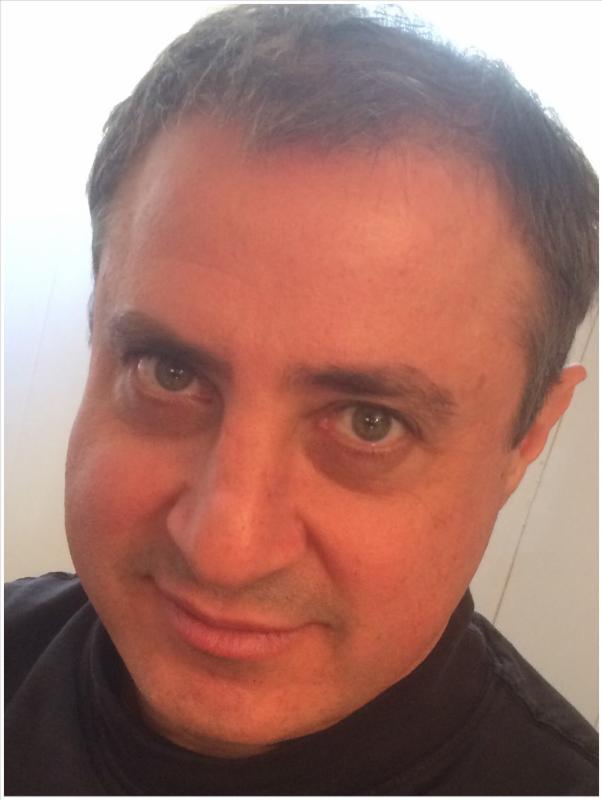 David Lessner Perper has served Beth Haverim Shir Shalom in Mahwah, New Jersey, as Cantor and Music Director, since 2006. His life is focused on teaching, preparing and leading spirited, moving worship experiences, pastoral care of his members, teaching b'nei mitzvah, and conducting junior and adult choirs.
Cantor Perpers' talents range from sacred music and oratorio, to concert and opera. This lyric tenors' singing career has taken him to Israel, Europe, and across the United States. David has participated in numerous cantorial workshops and concerts, and has taught classes at the Debbie Friedman School of Sacred Music of Hebrew Union College-Jewish Institute of Religion. He sang the Connecticut debut of Thomas Beveridge's "Yizkor Requiem" with The Greenwich Chorale Society, conducted by Paul Mueller. David has performed with Opera Neo, Natchez Opera Festival, Opera in the Heights, Tampa Opera and New York Opera Forum. Cantor Perpers' most recent film credit is "100 Voices: A Journey Home".
He is a member of the American Conference of Cantors, Cantors Assembly, and the HUC Alumni Association. David is married to Cantor Faith Steinsnyder.
|
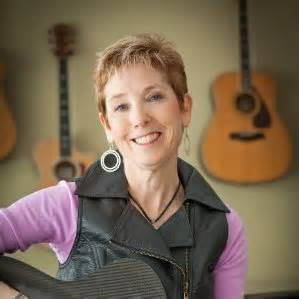 Our 6th submission in the Call for Presentations is by Ellen Allard, multi-award winning Recording Artist, Composer, Performer, and Educator. Ellen is a widely celebrated and influential Jewish musician and educator. Her songs are the gold standard for engaging & strengthening Jewish identity.
Committed to building community through music, Ellen has a knack for inspiring everyone to sing with her, whether during a children's concert, clergy or teacher workshop, Youth Choir, T
ot Shabbat, Wow Worship Religious School service, or Adult worship service. Also known as the Gluten Free Diva, Ellen is a Certified Holistic Health Coach. She teaches classes on how to incorporate healthy, delicious choices that are guaranteed to knock your socks off. Rounding out her commitment to healthy, creative living, Ellen recently became certified to teach Baby/Toddler/Children's yoga and has woven this new love into her Yoga-Infused Worship services for kids and families.
Early Childhood is the
gateway to Judaism, the first door through which Jewish children walk. Given the enthusiasm that children have for music, it is Ellen's mission to write songs for Jewish children that are 100% child-friendly AND teacher-friendly, songs that inspire them to connect to family, community, and Jewish values. Coincidentally, many of the songs Ellen composes appeal also to older children and even to adults. She recently began making simple videos of herself singing her own songs. She then posts the videos on her YouTube channel in an effort to teach and invite clergy, music and classroom teachers, parents and children to celebrate Judaism through the gift of song. Ellen's professional work as a Jewish Music Educator continues to fill her life with joy and purpose.
We hope that you find Ellen Allard's songs useful and meaningful in your work as a Jewish professional.
http://www.ellenallard.com/
https://www.youtube.com/user/EllenAllardVideos/videos
http://www.glutenfreediva.com/
http://kiddingaroundyoga.com/ellenallard/
|
|
JOINT COMMISSION ON WORSHIP, MUSIC, AND RELIGIOUS LIVING
|
Reports from our GTM Representatives
|
|
|
Rebecca, Abby, and Lindi at the JCWMRL
|
ABBY GOSTEIN:
There was much discussion at the JCWMRL meeting about what we teach regarding prayer. With our Hebrew School students and B'nai Mitzvah, we often focus on making sure students know the words and get all the sounds right - the "skills". Hopefully we teach the meaning of the words of the prayers. But how often do we teach about how to pray as human beings and Jews? What does it mean to pray? What meaning do the "skills" and translation of prayer words hold to those we teach if the concept of prayer itself seems unreachable or foreign to those we teach?
Lisa Grant led a wonderful session on teaching prayer. She highlighted four different purposes for expressions through prayer: Wow / Thanks / Oops / Please. We participated in an exercise where we focused on what each of us would want to pray for right now. Through this exercise we realized that true prayer often requires vulnerability - something that is not encouraged in our culture. After we wrote our prayer for ourselves, we expanded it into a prayer for everyone.
Lisa mentioned the Sh'ma to discuss prayer as listening / reflection, not only expression. In discussion, Ellen Dreskin mentioned Larry Hoffman's description of liturgy as sacred drama - where the congregation is not the audience, but members of the cast. How do we help our congregants to realize that they are cast members and how do we equip them to play their part? Ellen also brought up the question of, if you're leading a "service" who are you providing service to? Who is your customer? How do we help our congregation to see that the customer is not the folks in the pews?
There was discussion regarding how we often strive to do services "right," making sure we have all the elements in the correct order. But does doing the service RIGHT = doing the service WELL? Perhaps some bravery is needed to switch/add/eliminate elements from time to time to serve a holy purpose.
The meeting was a true example of "machloket l'sheim shamayim" - argument for the sake of heaven, as we discussed very deep issues of Prayer/God/Worship/ Spirituality with many differing perspectives, all addressed with respect. The commission will continue to discuss these issues and work towards a goal of providing resources on the topics discussed to all facets of the Reform Movement.
REBECCA SCHWARTZ:
As a first-timer attending the JCWMRL, I felt extremely welcome and was excited to be in New York City and see HUC for the first time. It was wonderful to reconnect with people I knew as well as make new friends. I loved that there were Jewish professionals sitting alongside lay leaders, and that our youth were also represented (NFTY and Jewish camping). We sat together and discussed many of the frustrations we share within our congregations, and offered solutions to one another, some of which we also shared with the group as a whole. The speakers, as a whole, were excellent. The food was outstanding!
The new machzor,
Mishkan HaNefesh, was discussed early on. My congregation was part of the pilot group, so we had many opportunities to delve into it and create our own service before actually receiving and using the machzorim. At the JCWMRL, we discussed that it offered "engagement, transformation, inclusion, and connection". Some synagogues found it very overwhelming, and others embraced it. It far exceeded inclusion over
Mishkan T'filah, but that will not be edited any time soon, and they learned much from MT that went into preparing MH.
To assist those congregations who are overwhelmed, the URJ will be coming out with essays, indexes, "divrei MH", and thematic pieces. There will also be a new youth machzor. While new music was written (
Shirei Mishkan HaNefesh), many felt that needed to be introduced slowly as many congregants would miss the traditional melodies. One way to solve this (both HHDs and regular services) would be to sing the traditional, followed by a new melody.
On another note, some ideas that were shared that I especially liked were holding hands and reciting Sh'ma together at the end of Religious School, a board meeting, etc. Many congregations have "greeters", but we should ALL be greeters within the congregation. Invite the b'nei mitzvah to discuss their mitzvah projects during the Erev Shabbat service instead of during the actual service on Shabbat morning (where family and friends already know about it). Display pictures of congregants with their names so people can really get to know one another. Have a service in someone's home on off dates (such as 12/25 or 1/1) and serve appetizers/desserts.
We discussed the term "service" a lot. Why is congregational prayer called a "service". Why don't more people showing up to "services"? If we are doing a "service" for our congregants, what are they actually getting? Do they understand what we're conveying? Praying isn't teaching, but we need to help our congregation understand more. We need to meet their needs. We can only do that by finding out what their needs are. Liturgy is drama. The congregation is the cast. We can't be afraid of "God talk". Prayer is a human experience and needs to be connected to each of us. The prayers are a mirror. We're all prayers.
LINDI RIVERS:
Reflections from the Joint Commission for Worship, Music and Religious Living meeting: Jan. 10-11, 2016.
Theme: "How do we teach worship/God/prayer/spirituality in our communities?"
After presentations and discussions on the various ideologies and practices on the topic, an interesting brain storming took place around turning the principles of our congregations into practices, particularly within worship. As a model and excellent place to begin, we used the three core URJ principles: audacious hospitality, tikkun olam and strengthening congregations. Utilizing this exercise in our own congregations naturally requires being very clear about our congregational principles, a conversation in which clergy teams and board members need to engage on a deep and meaningful level.
Assessing what the practices are during our worship services that convey each principle is more difficult than it might seem. It is easy to talk about welcoming practices such as greeting, providing moments for connection and reflection within the service and ways to honor new members. But how do we reflect our articulated principle of tikkun olam during worship? Some of the practices shared in the meeting were having the Bar/Bat Mitzvah talk about their mitzvah project during the D'var Torah moment at Kabbalat Shabbat services or before the singing of Oseh Shalom; having an opening or closing spiritual ritual at social justice event (bring a touch of worship to our events); finding places in our liturgy where we can highlight the tikkun olam theme within it; acknowledge (perhaps before Mi Shebeirach) the brokenness in the world as evidenced in specific communities, near or far, that are struggling at any given time.
The idea was to get us all thinking. There are, of course, many wonderful ideas out there and with hope it will be part of our task as a commission going forward to help stimulate the discussions with our communities and facilitate access to the wealth of good thinking.
With respect to the principle of strengthening congregations, participants shared some of the practices of their congregations, such as acknowledging the importance of the non-Jewish parent by having the Rabbi offer a blessing; asking people as they arrive, "what brings you here today?" as a way of discerning what the various needs are that have entered the space; allowing more opportunities, for personal expression, such as inviting mourners at weekday services to say a word about the person for whom they are saying Kaddish, or having "ask the Rabbi or Cantor" question period instead of a sermon or D'var Torah.
A comment was made that particularly resonated with me because it reflects my own belief that the expression of relationship between the Rabbis and Cantors on the bimah sets the tone for the worship experience. Warmth, eye contact and subtle signs of connectedness on the bimah, help to model relationship for our congregants. Authentically caring about one another and about our congregants cannot be fabricated but it might also be the most important ingredient in the whole mix.
|
|
|